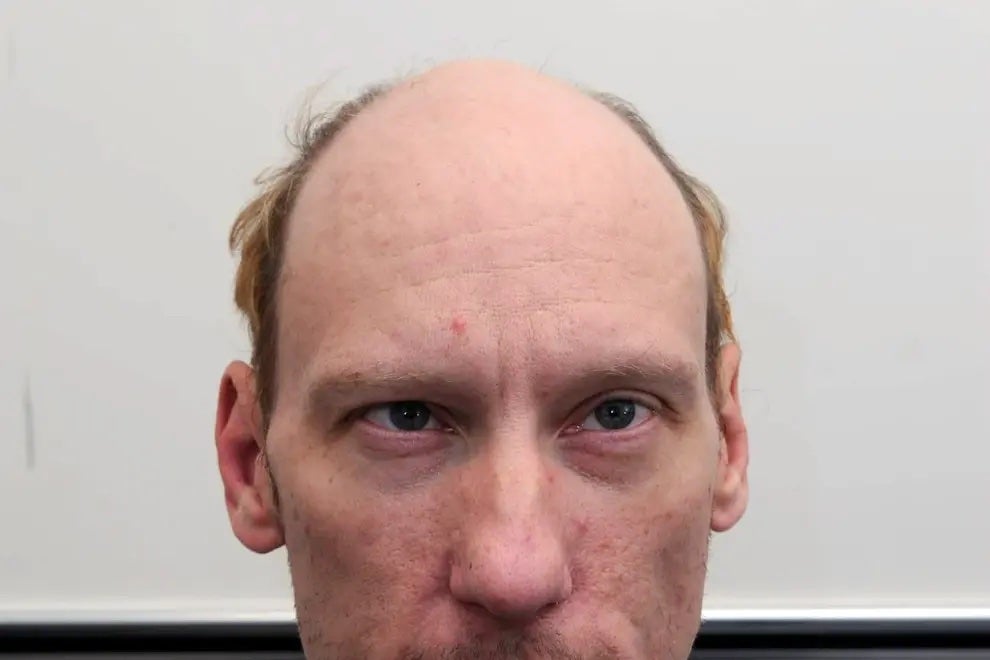‘Homophobia in the Met’ meant Stephen Port evidence was dismissed, inquests told
The man said police seemed to dismiss his attempts to provide them with information.

A man who tried to offer police evidence to aid the investigation into serial killer Stephen Port has condemned the force for “institutional homophobia” for dismissing his claims about victims based on their sexual orientation.
John Pape said he offered information to the Metropolitan Police in 2014 about Gabriel Kovari, one of Port’s victims, with whom he claims to have had a “whirlwind friendship.”
By September, the killer had murdered Anthony Walgate, Mr Kovari and Daniel Whitworth. He administered fatal doses of the drug GHB to the men before disposing of their bodies in the graveyard of St Margaret of Antioch church in Barking between June 2014 and September 2015.
Mr Pape said he tracked down Mr Kovari’s former boyfriend, Thierry Amodio, who was told by another man that the men were drugged at orgies involving older men. The original messenger was later identified as Stephen Port.
But Mr Pape said police seemed to dismiss his attempts to provide them with information.
He told the inquests into the deaths at Barking Town Hall: “I think it’s been said here that the police were underfunded and under emotional strain.
“But I think, when grieving families, boyfriend and friends are getting close to the truth and trying to raise the alarm 10 months before the Met are even willing to acknowledge the deaths are suspicious, it can’t be a funding issue.
“What resources did the families and friends have?
“What emotional strain were we under at that time?
“The only thing that makes sense about how disturbingly incompetent this investigation was is prejudice.
“If the lives and deaths of young gay and bi men aren’t treated with significance and respect, I think that amounts to institutional homophobia.”
He said he was told by police at the original inquests for Mr Kovari and Mr Whitworth that there was no evidence which suggested the two men knew each other, despite a “suicide note” found on Mr Whitworth’s body taking responsibility for killing Mr Kovari.
Mr Pape said he contacted gay charities, the gay press and campaigner Peter Tatchell to explain his concerns, adding: “I didn’t trust the police to link it properly.
“I was concerned about young, gay men in Barking.”
Mr Pape wept as he described hearing that Port had been arrested.
He said: “I think I felt a mix of emotions, certainly a kind of anger because it felt like I had these concerns ... that an older man might be preying on younger men ... and I felt like I hadn’t been listened to.
“I wish I could go back and tell myself to push it more.”
Port was sentenced to eight months in prison in March 2015 for lying about the death of Anthony Walgate, but was released just several months later. While released with an electronic tag, he killed for a fourth time before he was caught.
Port had tried to frame one of his victims with murder, by planting a fake suicide note alongside Whitworth’s body to suggest he was responsible for the death of Kovari, and that he had killed himself out of guilt.
Port was found guilty at the Old Bailey in 2016 of the four murders and sentenced to a whole life order – meaning he will never be released.
A senior detective has since apologised to the families of victims of serial killer Stephen Port, saying that he had made a number of “terrible” mistakes in investigating the date-rapes and murders.
In an inquest, Detective Sergeant Martin O’Donnell told jurors he regretted not informing his colleagues that, two years before his first known murder, Port was accused of drugging a young man with GHB before raping him.
Mr O’Donnell told the hearing at Barking Town Hall: “It feels like a fairly significant mistake of mine not to include it in that document. It’s a terrible mistake that I did not put it in there.”
The inquest continues.
